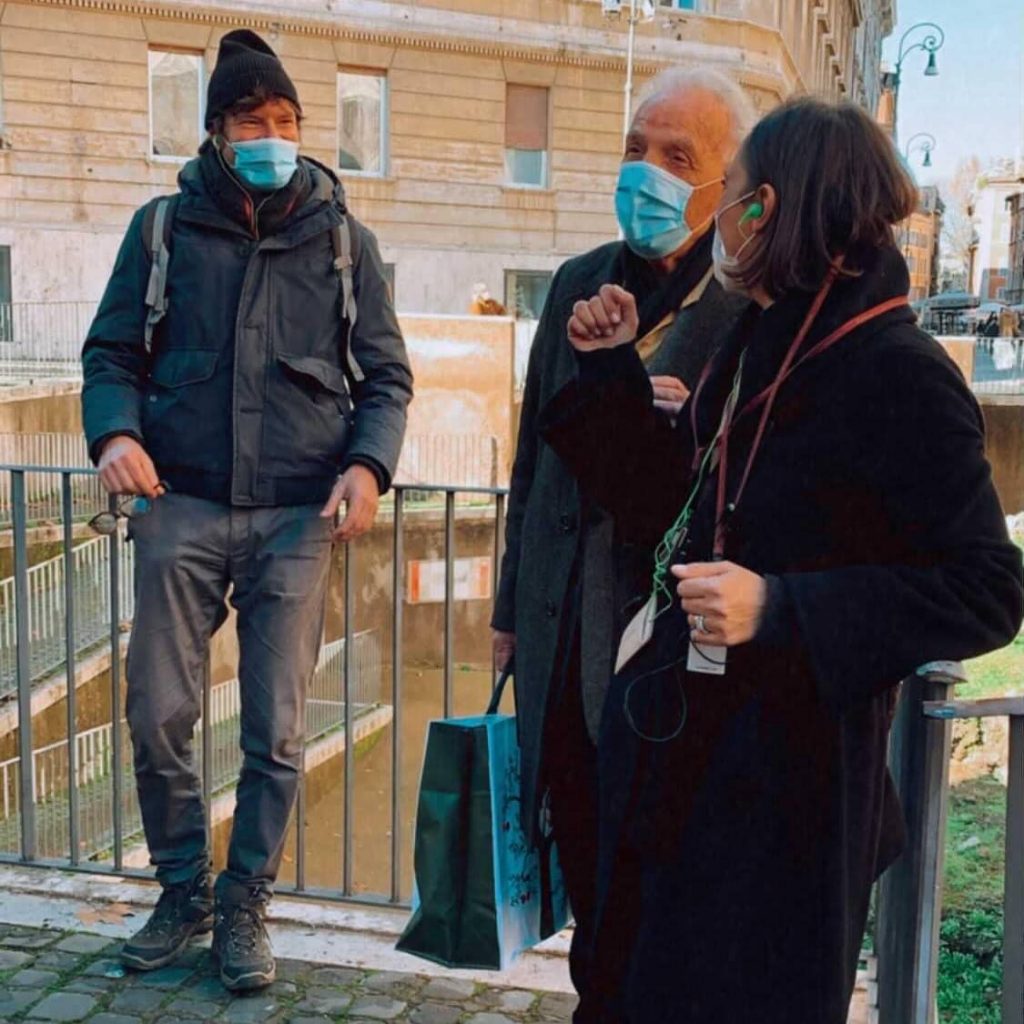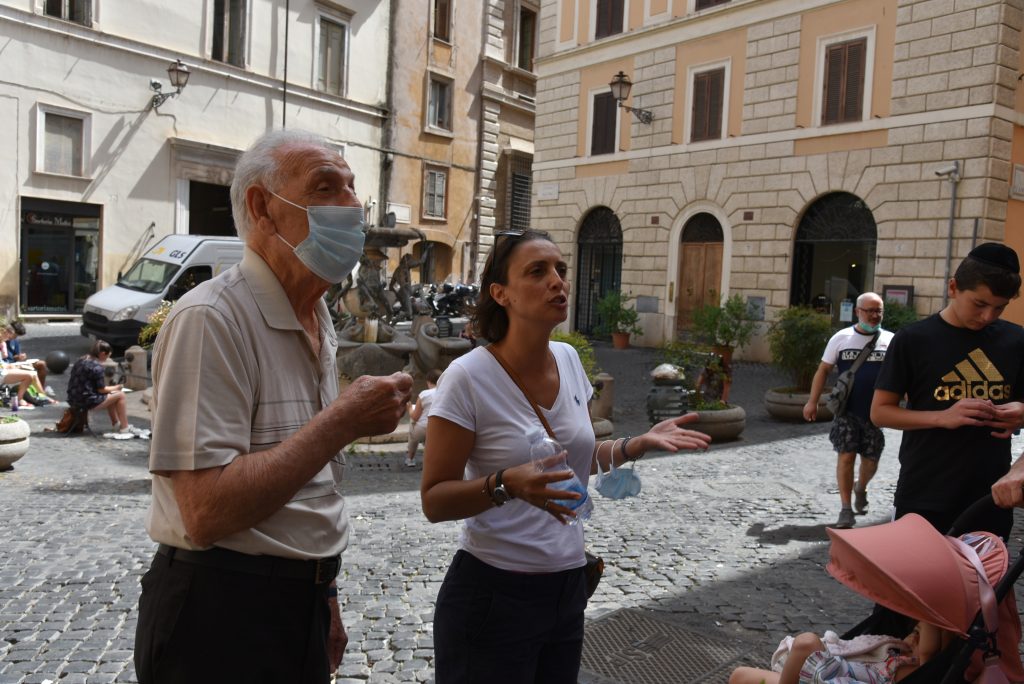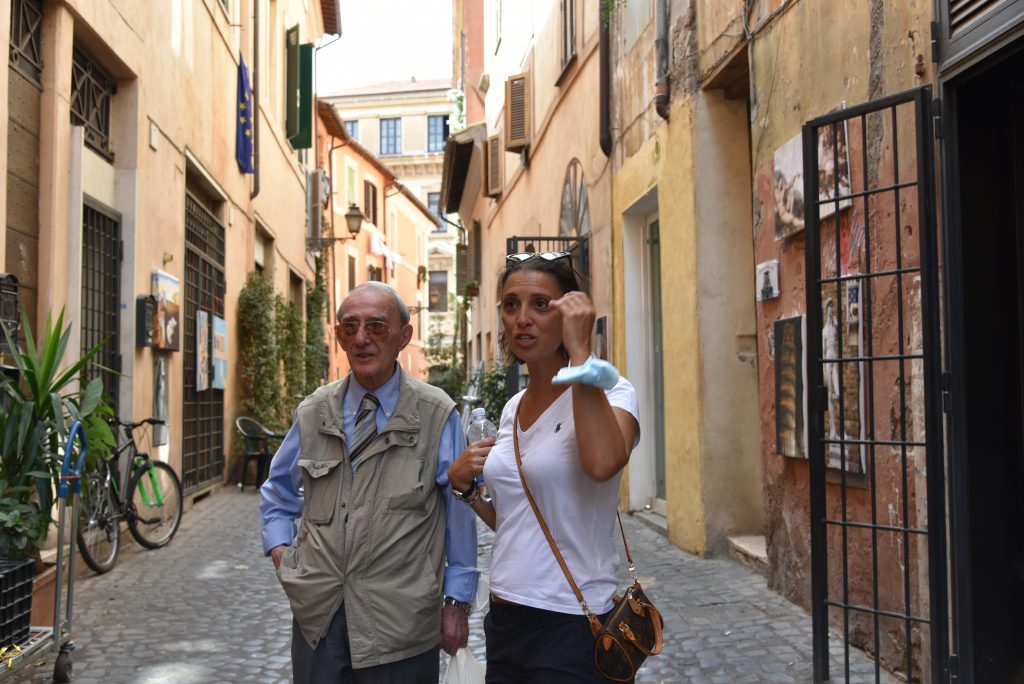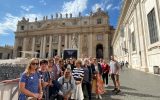
To address the issue of this uncomfortable and controversial papal history, we must acknowledge that it exists and that exposing its truth will perhaps amend history to reveal a more honest and inclusive narrative. We must also acknowledge, however, the decades of complacency and obfuscation of the truth. The Pope’s public silence (lack of a bolder public response) to Nazi atrocities and the extermination of Jews has promoted the long-standing dominant negative narrative in Jewish scholarship and in notable non-Jewish scholarship as to a negative assessment of Pius XII’s behavior towards the Jews during the Holocaust, Italy including the Jews of Rome under German occupation.
Today, decades later, a new, more inclusive scholarship has emerged. Historians, such as Micaela Pavoncello, founder of Jewish Roma Walking Tours seeks to provide a more accurate understanding of the role of Pius XII in protecting marginalized and persecuted Roman Jewry under occupation.
Scholars and individuals, explains Pavoncello, who have a negative view of Pius XII’s actions towards the Jews of Rome during occupation contend that he remained silent when he knew the Jews were deported on October 16, 1943, He knew that the Roman Jews were locked up in a Roman military prison for two days and he said nothing and did nothing to save them! Do they acknowledge that, at least. he did not interfere with efforts by priests, nuns and others to save some Jews? Do they acknowledge the increased danger the Jews in hiding would have faced had he forcefully spoken out?
On the other hand, Pavoncello has read countless works from scholars who have a positive view of Pius XII’s actions pertaining to the Jews of Rome. They contend, explains Pavoncello, that he should be declared a saint because there is overwhelming evidence that he saved many Jews in Rome and throughout Italy. However, do they deal with the fact that he did not speak out during the deportation of the Jews from Rome in October 1943? Do they fault his actions in any way!
Research into these works impacted Pavoncello’s personal perspective regarding the behavior of Pius XII towards the Roman Jews during the occupation. She has not found any proof that Pius XII acted courageously to stop this catastrophe. Merely allowing Jews to hide in the Vatican and taking incremental steps to save them from genocide was insufficient, says
Pavoncello. Pius XII waited for the storm of the Holocaust to past and for others to fight his battles for him. Pavoncello read and agrees with author, Susan Zuccotti’s , “Under His Very Windows: The Vatican and the Holocaust in Italy” where the author says “[The Church] has not expressed sorrow and repentance for the failures of Popes Pius XI and XII during the years of persecution and extermination of European Jews. It seems to have apologized for only the failures of lesser clergymen and their flocks. Ironically, some, though certainly not all, were less grievously at fault than their superiors in the Vatican. In Italy, at least, large numbers of priests, nuns, monks, and Catholic laypersons risked their lives to save Jews with little guidance from the pope.”
Rabbi Leo Baeck, the leader of German Jewry during the Holocaust, noted, “There is
nothing so sad as silence.” This applies, Pavoncello believes, to the case of Pius XII and the Jews of Rome under German occupation. She believes one must always remember the words of the Talmud that, “Whoever saves one life saves (saves lives in) the whole world”. Pavoncello holds that Pius XII should have tried harder to save Jews during the Holocaust, specifically Roman Jewish lives. Although there is no doubt that Catholic institutions hid Jews, thereby saving lives, the pope, however, never clearly and forcefully denounced Nazi genocide nor publicly called for protecting Jewish lives in danger. She wonders if his courageous predecessor, Pius XI, would have stood by silently while millions of innocents were slaughtered, or would his humanitarian and pastoral instincts have overridden his instinct for caution and temperance? There comes a time when one must reject neutrality and take a moral and ethical stance even though such a stance might be costly. Pavoncello considers Rabbi Baeck’s dictum to hold true, “There is nothing so sad as silence.”
Moreover, with Micaela Pavoncello, Founder of Jewish Roma, one can experience and appreciate this dramatic, special and interesting period of Roman Jewish history first hand by meeting some of the elders from the community, such as 89 year old Emanuele Di Porto who lived through this experience. You also meet Roberto Calò, who accompanies brides into the Great Synagogue of Rome, a long standing and important tradition to this community. You come to appreciate how Roman Jews today live and thrive.


References
Treasures of The Jewish Museum of Rome: Guide to the Museum and Its Collection Persecution, October 16, 1943 and The Deportation of the Jews of Rome (Araldo De Luca Editore, 2010)
The Italians of the Jewish Race: The anti-Semitic Laws of 1938 and the Jews of Rome (Palombi Editore, 2018)
Susan Zuccotti, Under His Very Windows: The Vatican and the Holocaust in Italy (Yale, 2000)











